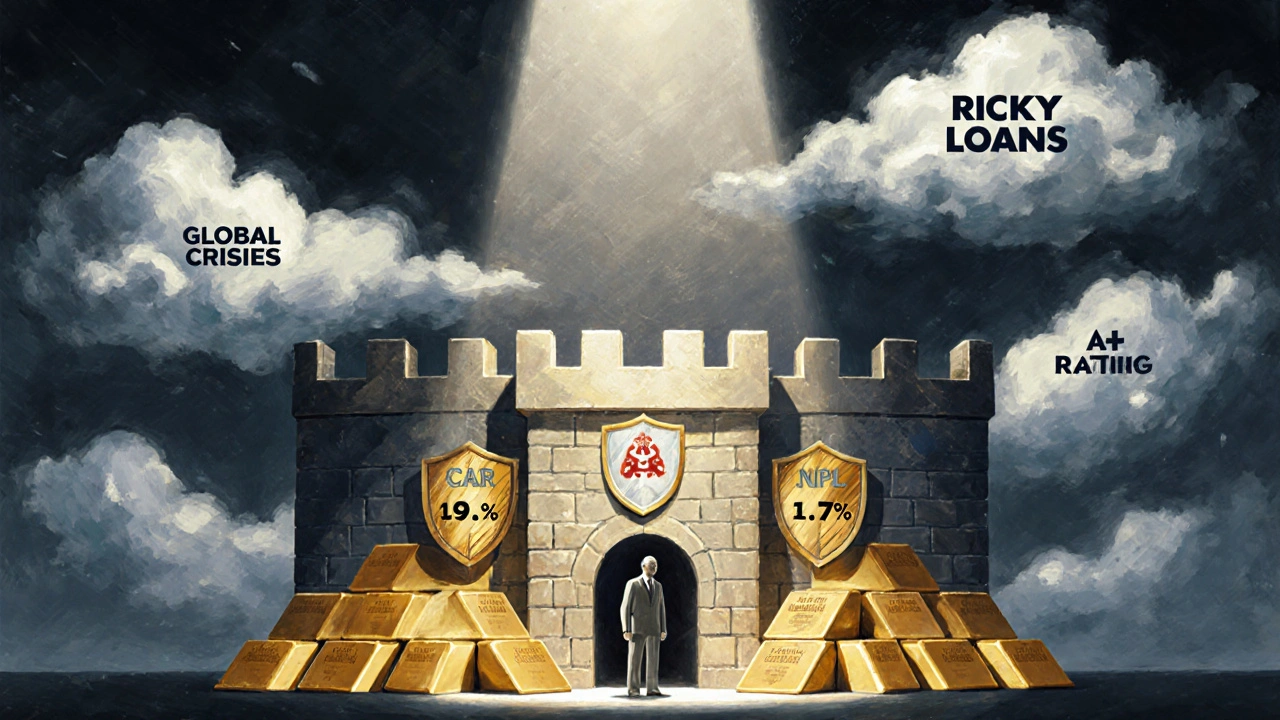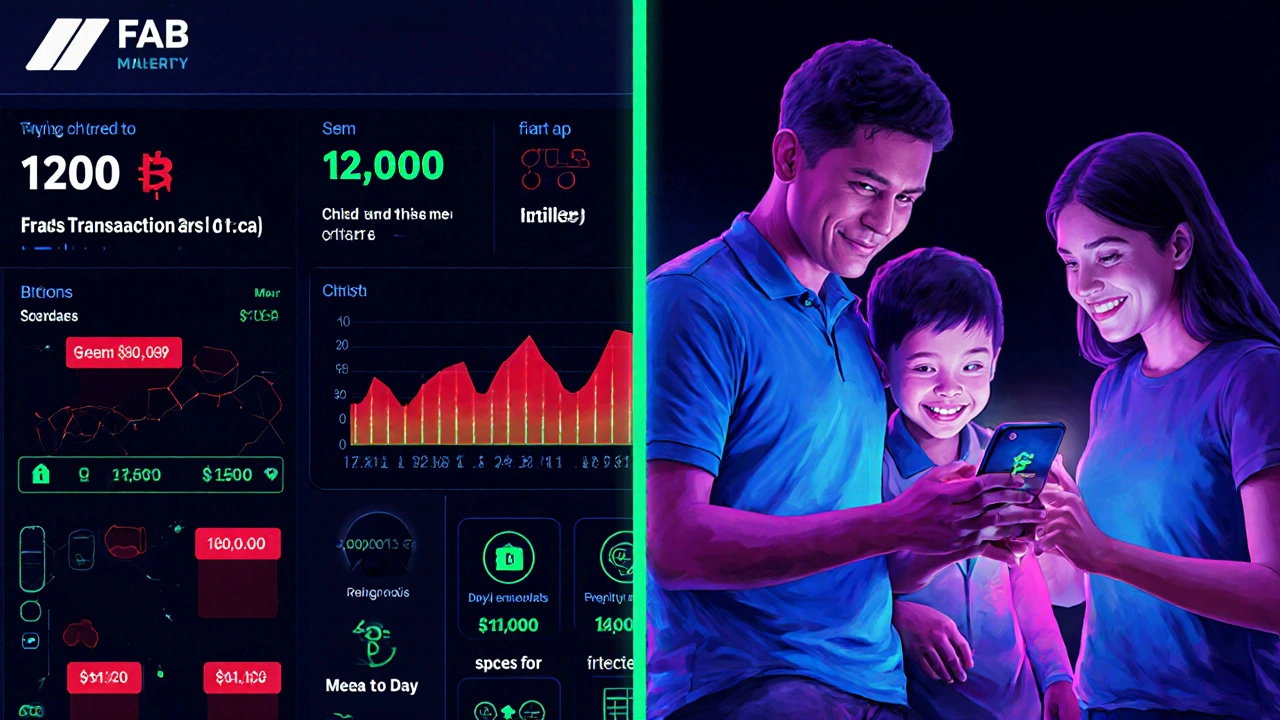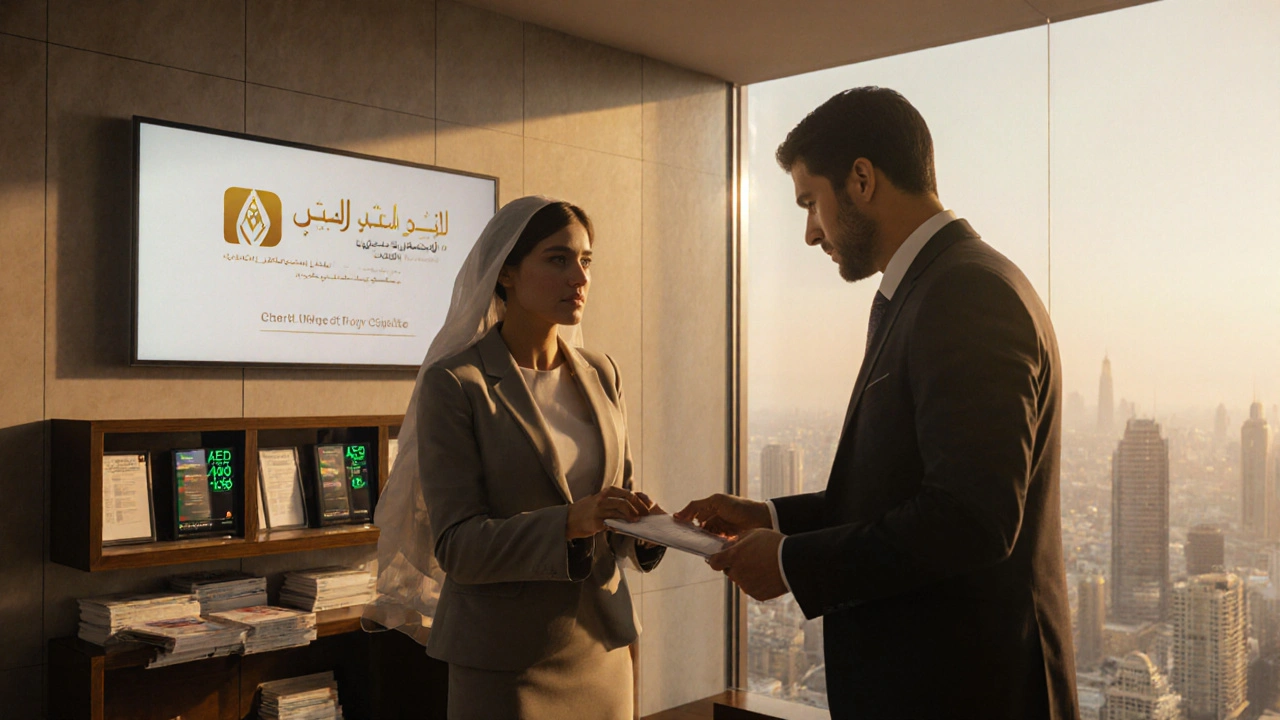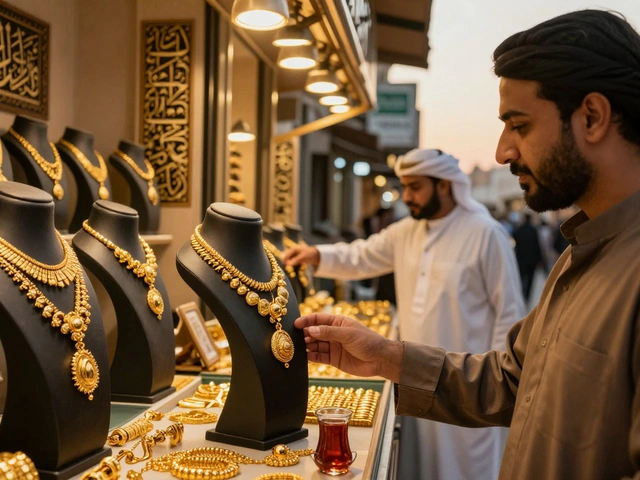You’ve got money saved up. Maybe it’s your salary, your business cash flow, or your life’s savings. And now you’re asking: which is the safest bank in the UAE? Not just any bank. Not the one with the fanciest app or the lowest fees. The one that won’t let you down when it matters most.
Let’s cut through the noise. The safest bank in the UAE isn’t just about big logos or flashy ads. It’s about stability, regulation, and real-world performance. And if you’re living in Dubai or planning to move here, you need to know who’s got your back.
Here’s the short answer
The safest bank in the UAE as of 2025 is First Abu Dhabi Bank (FAB). It’s not just the largest bank in the country-it’s the most resilient, the most transparent, and the most trusted by regulators and customers alike. FAB holds the highest credit ratings from Moody’s and S&P, with capital reserves that easily exceed UAE Central Bank requirements. It’s also the only bank in the country with a Triple-A local currency rating from Fitch Ratings.
But here’s the thing: safety isn’t just about one bank. It’s about understanding what makes a bank safe-and how to pick the right one for your needs.
What makes a bank safe in the UAE?
It’s not magic. It’s math. And regulation.
The UAE Central Bank doesn’t mess around. Every bank operating here must meet strict capital adequacy rules. That means they need to hold enough cash or high-quality assets to cover losses if loans go bad. In 2024, the average capital adequacy ratio (CAR) for UAE banks was 18.2%. That’s way above the global minimum of 10.5%.
But here’s what really matters:
- Capital reserves - How much cushion do they have? FAB has over AED 180 billion in Tier 1 capital.
- Asset quality - What kind of loans are they giving out? Low non-performing loan (NPL) rates mean fewer risky borrowers. FAB’s NPL rate is 1.7%, among the lowest in the region.
- Profitability - A bank that’s making money can absorb shocks. FAB reported AED 11.2 billion in net profit in 2024.
- Government backing - Abu Dhabi government owns 57% of FAB. That’s not just ownership-it’s a safety net.
Compare that to smaller banks that might offer higher interest rates but have lower reserves or higher NPLs. Higher returns? Maybe. But higher risk? Absolutely.
Top 5 safest banks in the UAE (2025)
Here’s who’s playing in the top tier, ranked by safety metrics:
| Bank | Parent Country | Capital Adequacy Ratio (CAR) | Non-Performing Loan Rate | Credit Rating (S&P) | Government Ownership |
|---|---|---|---|---|---|
| First Abu Dhabi Bank (FAB) | UAE | 19.4% | 1.7% | A+ | 57% (Abu Dhabi Government) |
| Emirates NBD | UAE | 18.1% | 2.1% | A | 26% (Dubai Government) |
| Abu Dhabi Commercial Bank (ADCB) | UAE | 17.8% | 2.3% | A | 51% (ADQ) |
| HSBC UAE | UK | 18.5% | 1.9% | A+ | 100% (HSBC Holdings) |
| Standard Chartered UAE | UK | 17.9% | 2.0% | A | 100% (Standard Chartered PLC) |
Notice something? All five are solid. But FAB leads in every category. And if you’re looking for a global brand with UAE roots, HSBC and Standard Chartered are strong alternatives-especially if you travel often or need international transfers.
Why FAB is the top pick
Let’s be real. You don’t just want a bank that’s technically safe. You want one that’s reliable.
FAB has survived oil price crashes, global recessions, and pandemic disruptions without a single government bailout. In 2020, when many banks in the region were struggling, FAB posted profits of AED 8.9 billion. That’s not luck. That’s discipline.
They also invest heavily in cybersecurity. In 2024, they launched a real-time fraud detection system powered by AI that blocks over 12,000 suspicious transactions every day. That’s not something a small bank can afford.
And if you’re worried about your money disappearing? The UAE Deposit Protection Scheme guarantees up to AED 1 million per depositor per bank. So even if a bank fails (which is extremely rare), you’re covered-up to that limit.

What about foreign banks like HSBC or Citibank?
Good question.
HSBC and Standard Chartered are both globally rated A+ and A, respectively. They’re rock-solid. But here’s the catch: they’re not local. That means:
- They might not understand local regulations as well as FAB or Emirates NBD.
- Customer service can be slower for Arabic-speaking customers.
- They sometimes close accounts for low activity or perceived risk-especially for freelancers or expats.
If you’re a long-term resident with a stable income, foreign banks work fine. But if you’re running a business, managing family finances, or planning to stay for decades, a locally rooted bank gives you more stability.
Red flags to watch out for
Not all banks are created equal. Here’s what to avoid:
- Banks with CAR below 15% - That’s a warning sign. The Central Bank’s minimum is 10.5%, but anything under 15% means thin margins.
- NPL rates above 3% - If more than 3 in every 100 loans are defaulting, that bank is taking on too much risk.
- No clear ownership structure - If you can’t find who owns the bank, walk away. Transparency matters.
- Too many negative reviews about frozen accounts - Especially common with smaller banks that lack proper compliance teams.
I’ve seen expats lose months trying to unfreeze accounts at smaller banks because they didn’t meet vague internal criteria. FAB and Emirates NBD? You’ll get clear documentation and support.
How to check your bank’s safety yourself
You don’t need to be a financial expert. Here’s how to do a quick safety check:
- Visit the UAE Central Bank website and look up your bank under "Licensed Financial Institutions".
- Check their latest annual report. Look for the Capital Adequacy Ratio and Non-Performing Loan Rate.
- Search for their credit rating on Moody’s or S&P website (search "[Bank Name] credit rating").
- Read customer reviews on Trustpilot and Google-but focus on patterns, not single complaints.
Pro tip: If your bank doesn’t publish its annual report online, that’s a red flag. Legitimate banks in the UAE are required to do so.

What about digital banks like Liv. or Wio?
Digital banks are convenient. But they’re not banks-they’re licensed financial institutions that partner with full-service banks like FAB or Emirates NBD.
Liv, for example, is powered by Emirates NBD. So your money is still protected under the same deposit scheme. But you’re not dealing directly with the bank. If you need to dispute a transaction or open a business account, you’ll hit limits fast.
Use digital banks for everyday spending. But keep your savings and business funds in a full-service bank.
Final advice: Don’t just pick the safest-pick the right one
FAB is the safest. But is it the best for you?
If you’re a freelancer who needs low fees and easy international transfers, HSBC might be better. If you’re a family with kids in school and need a local branch that speaks Arabic, FAB wins. If you’re a business owner needing corporate loans, Emirates NBD has the most flexible packages.
Here’s what to do next:
- Compare account fees-some banks charge AED 100/month for basic accounts.
- Check mobile app ratings-FAB and Emirates NBD both have 4.7+ on App Store.
- Visit a branch. Talk to a rep. Ask: "What happens if I lose my job? Can I pause payments?" Their answer tells you more than any rating.
Don’t just go with the biggest name. Go with the one that fits your life.
Frequently Asked Questions
Is my money safe in UAE banks?
Yes. All licensed banks in the UAE are covered by the UAE Deposit Protection Scheme, which guarantees up to AED 1 million per depositor per bank. This is backed by the UAE Central Bank. Since 2009, no depositor has lost money due to a bank failure.
Which bank has the best mobile app in the UAE?
FAB and Emirates NBD both rank highest in user satisfaction for mobile banking. FAB’s app has features like instant card blocking, biometric login, and real-time spending alerts. Emirates NBD’s app is better for business users with invoice uploads and multi-user access.
Can foreigners open a bank account in the UAE?
Yes. You need a valid passport, UAE residence visa, and proof of address (like a utility bill or tenancy contract). Most banks require a minimum initial deposit of AED 3,000-5,000. Some banks, like HSBC, may require proof of income if you’re not employed locally.
Are UAE banks affected by global financial crises?
They’re insulated by design. UAE banks have low exposure to global risky assets. Most loans are local-real estate, SMEs, and government-backed projects. During the 2008 crisis and 2020 pandemic, UAE banks remained profitable while many global banks lost billions.
What’s the difference between FAB and Emirates NBD?
FAB is bigger, with stronger capital reserves and slightly better credit ratings. Emirates NBD has more branches in Dubai and better services for small businesses and freelancers. FAB leans toward Abu Dhabi’s corporate clients; Emirates NBD is more Dubai-focused. Both are extremely safe.
What to do next
Don’t wait until you need to move money in an emergency. Take 30 minutes this week:
- Log into your current bank’s app. Check your account type and fees.
- Compare it to FAB or Emirates NBD’s offerings.
- Visit their website. Read their latest annual report.
- Book a free consultation at a branch.
Your money isn’t just numbers on a screen. It’s your security, your future, your family’s safety net. Choose wisely.








Shawn McGuire
November 14, 2025 AT 12:53FAB’s numbers are solid, no doubt-but let’s not pretend the UAE’s banking system is some untouchable fortress. The deposit guarantee is nice, but it’s still a government-backed safety net, not market-driven resilience. And let’s be real: if the Abu Dhabi government ever had to bail out FAB, it’d mean the entire emirate’s fiscal health was already in freefall. The 19.4% CAR looks great on paper, but it’s inflated by sovereign-linked assets. Real risk? It’s hidden in off-balance-sheet entities and property-backed loans tied to Dubai’s speculative boom. I’ve seen this movie before-2008 didn’t break UAE banks because they were strong. They broke because the oil money kept flowing. When it stops? Watch the ratings adjust.
Also, HSBC’s global infrastructure means your USD/EUR transfers won’t get stuck in local compliance purgatory. That’s worth more than a few basis points in CAR.
And for the love of God, stop calling digital banks ‘not real banks.’ They’re just leaner. Liv’s parent is Emirates NBD. Your money’s still covered. Stop fear-mongering over structure.
Transparency matters, yes. But so does practicality. If your bank’s app doesn’t let you freeze your card in 3 taps, you’re already behind.
And yes, I’ve had accounts frozen by FAB for ‘unusual activity’ after a trip to Jordan. Don’t assume safety = convenience.
Hallam Bailie
November 14, 2025 AT 19:47bro just use FAB 😭 it’s got the government behind it and a 4.9 star app. I’ve been with them for 5 years, never had an issue. Even when my salary was late, they didn’t charge me a cent. HSBC tried to close my account last year because I didn’t deposit ‘enough’-like, I’m a freelancer, not a hedge fund. FAB just said ‘cool, here’s your receipt.’
Also, their ATM fee thing? Zero. Even abroad. That’s wild.
Also also-why are we even debating this? It’s not like there’s a secret list of 20 banks. It’s FAB, ENBD, ADCB, and then the two UK ones. Pick FAB, move on with your life. 🙏
mark roberts
November 15, 2025 AT 00:05Love this breakdown. Honestly, as an expat who’s moved here three times, I used to think foreign banks were ‘more professional’-until I got locked out of my account for 6 weeks because I didn’t submit a ‘residency update’ in the right format. FAB? Walked in, spoke Arabic, got it fixed in 20 minutes. No forms, no stress.
Also, the AI fraud detection thing? I got a text within 90 seconds of a sketchy transaction attempt on my card. They blocked it, called me, and asked if I’d been to Dubai Mall recently. I hadn’t. They refunded me before I even got home.
And yeah, digital banks are fine for coffee runs-but I keep my rent and kids’ school fees in FAB. Because when you’ve got a 2-year-old and a 4-year-old, you don’t want to be arguing with a chatbot about ‘account verification.’
Thanks for the clarity. This post saved me from wasting hours on Reddit threads full of FUD.
Shayla O'Neil
November 15, 2025 AT 05:21I think what’s interesting here isn’t just which bank is safest-but what ‘safety’ really means to different people. For some, it’s government backing. For others, it’s global access. For parents, it’s customer service that doesn’t feel like a bureaucratic maze. For freelancers, it’s flexibility. For retirees, it’s predictability.
FAB leads in metrics, yes. But safety isn’t a single point on a graph. It’s a feeling. It’s the quiet confidence that when you need help, someone will answer-not a bot, not a script, not a 3-week wait for an email reply.
I used to think ‘safety’ meant ‘biggest bank.’ Now I think it means ‘most human.’ And that’s why I stayed with Emirates NBD, even though FAB has better numbers. Their branch manager remembered my daughter’s name. That’s not in any report.
Also, the deposit guarantee is a beautiful thing. But it’s a last resort. The real safety is in choosing a bank that treats you like a person, not a balance sheet.
Thank you for writing this. It didn’t just inform me-it reminded me why I’m here, and why I care about where my money sleeps at night.
Anil Sharma
November 17, 2025 AT 03:10